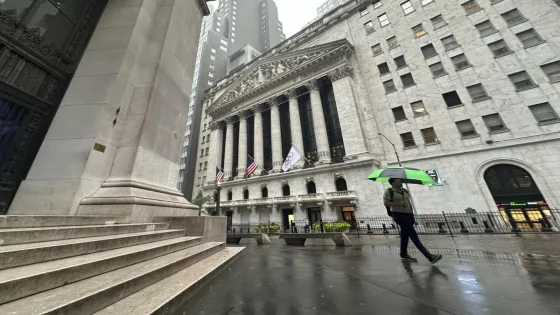With volatility roaring back this week, you’ve probably seen the warnings against checking your 401(k). The exhortations to buy the dip in stocks. The urging to rebalance your portfolio. The calls that a recession is more likely.
In short, a week like this can be scary and confusing.
Enter Steve Sosnick, chief strategist at Interactive Brokers, with a zen-like suggestion: “Breathe.”
When confronted with a sell-off, investors have three options: buy, sell, or hold. Of course, these are always the options. But it’s worth a reminder that when there’s turbulence, doing nothing is always a choice.
There are plenty of pundits who are echoing that calming tone.
“To date, asset market fluctuations have remained within normal historical ranges and, in our view, do not signal cause for alarm,” wrote Michael Gapen, head of US economics at BofA Global Research, in a note to investors. Julian Emanuel of Evercore ISI told clients that stocks are still in a bull market. And Charles Schwab senior investment strategist Kevin Gordon explained to Yahoo Finance why he doesn’t see recent employment indicators as recessionary.
Early in the week, Goldman Sachs’ strategy team, led by David Kostin, said they were sticking with their call for the S&P 500 to reach 5,600 this year. They pointed out in a note to clients that sales and earnings estimates for 2024 and 2025 haven’t changed and that the S&P 500 typically rebounds after a 5% pullback.
Of course, not everyone is saying “ohm.” David Rosenberg of Rosenberg Research told Yahoo Finance that he still sees the US economy heading for a recession. For now, that seems the minority view, even as JPMorgan economists raised their forecast for the probability of a contraction to 35% by the end of the year from 25%.
Meanwhile, Sosnick said he’s been getting a lot of calls from non-financial industry friends asking, “What do I do?” His answer: “Nothing.”
There is one caveat, he said: If Monday’s sell-off in particular “freaks you out, you’re carrying too much risk. If you got margin calls or something, you may want to be taking a bit less risk.”

